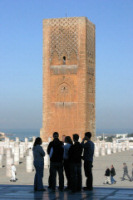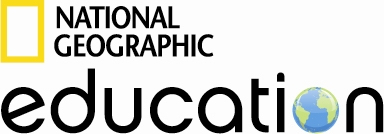Weather
Average temperatures should be somewhere around 70ºF. For the most part, days will be warm and nights cool. You may wish to bring a sweater and scarf for the evening. From November – March, please be prepared for cooler weather and rain.
Packing List
Please pack as little as possible! It is only four days! Leave at home what you do not necessarily need (e.g. hairdryer)
- Backpack (If you do not have one try to borrow one—it’s the most convenient)
- Passport – ‘Not a copy–only originals are accepted‘
- Money
- Money belt
- Pictures of your family and friends (great for conversations with homestay families)
- One set of clothes plus the ones you are wearing.
- Hiking shoes (or other comfortable, waterproof shoes)
- Small towel
- Flip flops / shower shoes
- Sunglasses and sunscreen
- Toothbrush and toothpaste
- Toilet paper / small packs of kleenex
- Waterless hand sanitizer
- Hygiene: sufficient tampons and plastic bags (You can also buy them in Morocco but it is better to come prepared. I know it is a very private matter but please do not hesitate to ask questions)
- Sense of adventure and openness for people
Additional Items for November – March
- Warm clothes (long johns etc.)
- Fleece/Pullover
- Gloves and hat
- Windbreaker (it is possible to have rain)
Optional Items
- Personal items (e.g. cameras)
- Swimsuit or extra underwear for hammam visit (Arabic style public baths similar to a sauna / This is an optional activity.)
- Medication if you are prone to motion sickness—please consult your physician
- Travel journal and pencil
ATMs and Exchanging money
Most ATM cards will work at Moroccan cash machines in major cities. Credit cards are not widely used in Morocco. Students may find a credit card helpful for getting money at cash machines, but this is a more costly option than using an ATM/Debit card.
In major cities and at the border, participants will have the option of changing currency at offices specifically designed for this purpose.
Cultural considerations
Participants are expected to make a genuine effort to learn more about the people and culture of the host community. It is easy to come off as a rich, arrogant foreigner in Morocco if one is not conscious of their attitude in the country. Be respectful while taking pictures of people, ritual events or special places. Never take a picture of another person unless you have their permission. Displays of wealth such as jewelry and technological gadgets like Discmans, cell-phones, watches etc may make you more prone to being robbed, and it also accentuates the economic gap. Moroccan standards of living may be extremely different than what you are used to, so please prepare yourself to be open to new customs.
Spending money
The Morocco Exchange itinerary is specifically designed so that participants will have essential expenditures taken care of before beginning the journey (food, transportation, and accommodations). However, for those students who wish to make purchases while in Morocco, there are a number of options available for carrying, changing, and receiving money. The local currency is the dirham and the rate of exchange is around 10 Dirhams for 1 US dollar.
Visas and Consular advice
US and EU citizens do not require visas to enter Morocco. There are no entry or departure fees, either. But you should make sure that your current Spanish visa status is such that return to Spain will not be a problem. Students travelling on a passport from any other country should contact the Moroccan Consulate/Embassy in their country of residence. The list of countries requiring a tourist visa to enter Morocco will also be listed on the Consulate website
Participants are encouraged to carry a copy of their passports with them at all times, so that, if questioned by local officials, proof of identity and citizenship is readily available.
Cultural Adjustment
Participants are expected to make a genuine effort to learn more about the people and culture of the host community. It is easy to come off as a rich, arrogant foreigner in Morocco if one is not conscious of their attitude in the country. Be respectful while taking pictures of people, ritual events or special places. Never take a picture of another person unless you have their permission. Displays of wealth such as jewelry and technological gadgets like Discmans, cell-phones, watches etc may make you more prone to being robbed, and it also accentuates the economic gap. Moroccan standards of living may be extremely different than what you are used to, so please prepare yourself to be open to new customs.
Dress
You should wear something that is neat, yet comfortable for travel. Shorts, short skirts/dresses and skimpy, tight tops are not appropriate. Long skirts or pants are appropriate as are comfortable and loose longer tops. In the larger cities in Morocco, you will see women dressed in everything from the latest trendy clothing to women completely covered. As a foreigner, dress is extremely important, and especially for women: cnservative dress will help reduce the amount of unwanted attention you receive. It is best to avoid exposing cleavage and wearing tank tops.
Religion and Islam
Islam, the faith of most Moroccans except a diminishing Jewish community and a small European colony, provides the foundation for the nation’s spiritual life and the traditional social system. Practice in many regions is unorthodox and the demands of industrialization organization have made the traditional devotion difficult for those employed in the modern sector. The constitution guarantees freedom of religion, describes the nation as Muslim and the king as the “Amir El Mouminin”, or commander of the faithful. Although many practices and beliefs of the Berbers, as well as other rural and urban inhabitants, deviate from, the orthodox Islam of the Koran, personal devotion to the religion has rarely wavered. The Islam practiced in Morocco is considerably less strict than that in other parts of the Muslim world, although Moroccans follow Islam to the letter during Ramadan, the holy month. However, Morocco, like the rest of the Middle East, is an Islamic country.
Misconceptions about the nature of Islam abound. Ever since the Crusades, fearful images Muslims have dominated the Western subconscious and terrori st associations are especially strong after September 11th. Counter to these stereotypes, Moroccans are widely recognized for their warmth and hospitality to visitors. Likewise, as noted by Margaret DeB. Tutwiler, U.S. Ambassador to Morocco, ”Today, approximately five million Muslims live in the United States and practice their faith in complete freedom. Since September 11, Americans have worked hard to build additional and new bridges of understanding and tolerance between Muslims and non Muslims in America”.
st associations are especially strong after September 11th. Counter to these stereotypes, Moroccans are widely recognized for their warmth and hospitality to visitors. Likewise, as noted by Margaret DeB. Tutwiler, U.S. Ambassador to Morocco, ”Today, approximately five million Muslims live in the United States and practice their faith in complete freedom. Since September 11, Americans have worked hard to build additional and new bridges of understanding and tolerance between Muslims and non Muslims in America”.
Perceptible differences between Islamic and Western worldviews may be a source of conflict and contention, but they are also hold potential for profound insight into both cultures and individuals. Unlike Western societies where atheism is acceptable or even fashionable, for the Moroccan a life without God would be unthinkable. Islam is a very important element in their lives, and one that Moroccans love to discuss. For travellers open to heightening their cultural and self awareness, Morocco offers countless opportunities for genuine cross-cultural connection.
Homestay
This is a short homestay period and the objective is to give you an idea of a typical family. Your family members recognize that you probably won’t speak Arabic, so don’t worry. There will be at least one member of the household who can speak English/French. Use your powers of observation, and we guarantee that you will learn quickly! Breakfast, lunch and dinner will be eaten with the family. During your homestay, a no alcohol policy will be in effect. Your homestay will be an unusual but extremely rewarding situation. Try to relax and enjoy!


